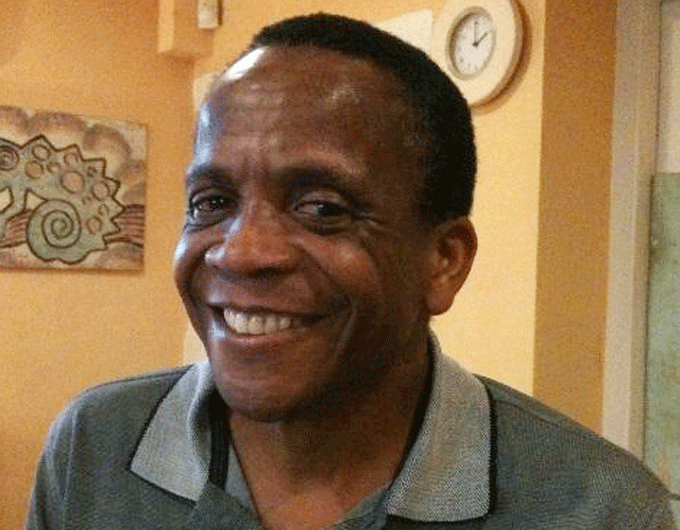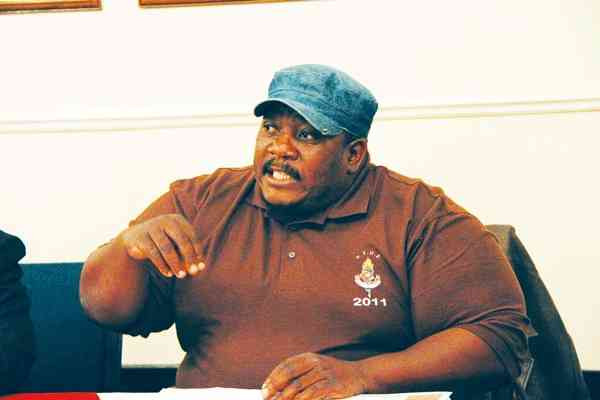
By Fred Zindi
Many artistes seem to forget about the role played by music producers in making their music appreciated by the public, hence marketable.
Producers are often people who understand the harmonic progressions, modulations, the timbre or the coda in music and usually work behind the scenes. They create those beats and sounds which entice the public to like an artiste’s music.
To those of us who have been following Zimbabwe’s music since the 1970’s, we should acknowledge Bothwell Nyamhondera’s stature as an outstanding music producer.
Nobody in this world who has had contact with Zimbabwean musicsince then will deny that most of the excellent sounds that he or she enjoys have got Nyamhondera’s touch to it.
Bothwell Nyamhondera who started his career as a drummer of various bands, now recognises himself as a music producer more than a drummer as evidenced by his statement to me only last week when I asked him what he is up to: “I left Diamond Studios and am now working from home mixing people’s music privately”. He does not talk about being a drummer in a band anymore.
Indeed, when it comes to music production, Nyamhondera is a genius. His genius has spanned generations. His works have inspired millions of people spread all over the world.
His productions have sold millions of units in Zimbabwe and around the world. The majority of households are filled with waves of music from his expertise. We listen to the music he has produced from our car radios or from other gadgets such as home stereos, mobile phones or televisions.
- Chamisa under fire over US$120K donation
- Mavhunga puts DeMbare into Chibuku quarterfinals
- Pension funds bet on Cabora Bassa oilfields
- Councils defy govt fire tender directive
Keep Reading
He is definitely phenomenal. Nyamhondera is indeed a beacon of hope for many artistes, a man who has become the entry door to stardom and change of fortune for many.
Nyamhondera could be described as a father to many artistes who were facing rejection and certain career demise.
The producer was born and bred in Mutare. He lived and grew up in Sakubva’s Old Location.
He attended his primary and secondary education in Mutare and moved to Harare via Masvingo in 1978 upon completion of his studies.
Before moving to Harare, he had learned how to play drums and joined several bands in Mutare.
After three years of playing in bands in Mutare, he was lured to Masvingo where he played in a band called the Mundoz.
This band was owned by a Mr. Samson Mundondo, a Masvingo businessman who also owned a fleet of buses and a restaurant in Mucheke Township.
After the Mundoz split up when some of its members joined Jonah Moyo’s Devera Ngwena Jazz Band, Nyamhondera decided to move to Harare. While in Harare, he formed a group called Octave.
The group was made up of members such as Ernest Tanga wekwaSando, Louis Mhlanga, Chris Chabuka, Eppias Paradza, and the late Alfred de Sousa.
After the band disbanded, Nyamhondera and Tanga wekwaSando teamed up again and called themselves Giraffe which produced two hit singles Mahobho and Vakomana Vekwedu.
Due to a lack of regular income from being a drummer in a band, Nyamhondera had other ideas.
This led to the beginning of his music production stint. In 1980, on realising that there was a shortage of personel in the area of music production, Nyamhondera joined Shed Studios as a trainee engineer.
He worked at Shed Studios until 1982 after which he joined Gramma Records where he worked for 22 years until 2004 as their resident engineer and later became their chief producer.
In 2004, he left Gramma Records to work as a freelance engineer/ producer at different studios. He had a brief stint at Last Power Media from 2009 to 2011. He then left for the United Kingdom to join his family. (His wife, Spiwe is currently based in the UK. Together, they have three children Sinikiwe, Sibongile and Farai). He came back to Zimbabwe in 2013 and joined Diamond Studios.
Because of his excellent reputation, Alick Macheso, Nicholas Zakaria and Tongai Moyo would not let anyone else produce their music, but Bothwell Nyamhondera. They had seen and appreciated his expertise over the years as producer when he worked with well-known Zimbabwean artistes such as Thomas Mapfumo, Oliver Mtukudzi, Charles Charamba, Leonard Dembo, Talking Drums, John Chibadura, Ilanga, Mechanic Manyeruke and many other artistes who had made big hits in the country.
As a music producer, Nyamhondera worked professionally with recording artistes and bands, sound engineers, record labels and marketing teams to oversee all creative and technical aspects of an album.
In short, although he was the man behind the scenes, Nyamhondera was in charge of music production, because he directed and controlled the entire production process of a musical record.
In the past, during the time of Gramma Records, Record and Tape Productions (RTP) and Zimbabwe Music Corporation (ZMC), most music producers such as Tymon Mabaleka, Bothwell Nyamhondera, A.K. Mapfumo, Hilton Mambo, Henry Peters, Chrispen Matema, Peter Muparutsa and others were actually employed by the record companies which sponsored artistes with great musical talents and produced their work.
Although the individual producer may regard himself as a professional, he is not truly so unless other members of the society acknowledge his claims and accord him the role and status he seeks for himself’.
Many artistes flock to a producer because of the reputation he has created for himself. Nyamhondera is an easy person to work with and will give an artiste the direction and corrections he/she needs in music production.
In Zimbabwe, many artistes have in the past gone through producers such as the late Fortune Muparutsa, Andrew Baird, Delani Makhalima, Audius Mtawarira and Simba Tags.
With the advent of the numerous backyard studios mainly in high density suburbs, the number of so-called music producers has also increased. Some are successful. Others are not. Chillspot Records in Mbare are known for producing ‘riddims’ for Zimdancehall artistes and they have built their own reputation in this regard.
However, they do not cover other music genres. Lately, there has been a flood of Zimdancehall producers.
Names such as PTK, JMP, Fantan and Levels come to mind.
Artistes with different kinds of music seek other avenues. One producer known as Oskid has established himself in the business.
One other successful producer is Clive Mono Mukundu of Monolio Studios. He had the opportunity to visit Motown Records when he went to the United States in 2018.
While there, he sharpened his production skills as he was privy to advanced technology used by legends such as Quincy Jones.
In Zimbabwe he works from a garage in Hatfield and many top Zimbabwean and international artistes have gone through his hands of production. He is credited with the production of over 1 000 albums.
How I wish Mono could team up with the likes of Nyamhondera to create a unique sound which will be at last labelled as Zimbabwean sound. We have had a problem of incorporating the old traditional music to the modern sounds up to now. This is why music in Zimbabwe does not have its own identity.
Look at the Nigerians. They have come up with Afro Beats which embrace Fela Kuti’s traditional sound and this has helped to create the sound of modern artistes who are now all millionaires such as Burna Boy, WizKid and Davido.
Nyamhondera is not finished yet. Cultural experts or government could use his sharp skills to give the country a musical identity and at last we will have a true Zimbabwean beat.
Kirsty Coventry and her team at the ministry of Sport Arts and Recreation if they care, should organise a conference of artistes aimed at identifying a true Zimbabwean music sound. Keynote addresses should be given by the likes of Bothwell Nyamhondera, Peter Mparutsa and Mono Mukundu. The arts have been side-lined for a long time, but is it not time this important aspect of our culture was addressed?
At the moment, we are borrowing music from Jamaica and the DRC Congo calling it Zimdancehall and Sungura respectively. We should be ashamed of ourselves.
— Feedback: [email protected]










